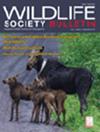Conservation easements: A tool for preserving wildlife habitat on private lands
IF 1.5
4区 环境科学与生态学
Q3 Environmental Science
引用次数: 2
Abstract
Conservation easements are an essential tool for conserving private lands, and they have great potential for enhancing wildlife habitat and biodiversity. Private land conservation in the United States is likely to increase in the coming years, in light of Executive Order No. 14,008, issued by President Joseph Biden on January 27, 2021, which set a goal of conserving at least 30% of U.S. lands and waters by 2030 (Executive Office of the President 2021). There is, therefore, a need to evaluate the effect of conservation easements on wildlife habitat and biodiversity and to make recommendations for further enhancing the effectiveness of easements. Herein we propose a shift from primarily negative clauses and restrictive language to a more affirmative approach, developing language to proactively improve management of properties under conservation easement in order to maximize benefits to wildlife and ecosystems. In addition, we identify areas for further research on landowner perceptions and experiences regarding conservation easements.保护地役权:在私人土地上保护野生动物栖息地的工具
保育地役权是保育私人土地的重要工具,在改善野生动物生境和生物多样性方面具有巨大潜力。根据约瑟夫·拜登总统于2021年1月27日发布的第14008号行政命令,美国的私人土地保护可能会在未来几年增加,该命令设定了到2030年保护至少30%美国土地和水域的目标(2021年总统行政办公室)。因此,有必要评估保护地役权对野生动物栖息地和生物多样性的影响,并提出进一步提高保护地役权有效性的建议。在此,我们建议从主要的否定条款和限制性语言转向更积极的方式,发展语言来主动改善保护地役权下财产的管理,以最大限度地提高野生动物和生态系统的利益。此外,我们确定了进一步研究土地所有者对保护地役权的看法和经验的领域。
本文章由计算机程序翻译,如有差异,请以英文原文为准。
求助全文
约1分钟内获得全文
求助全文
来源期刊

Wildlife Society Bulletin
BIODIVERSITY CONSERVATION-
CiteScore
2.10
自引率
13.30%
发文量
0
期刊介绍:
The Wildlife Society Bulletin is a journal for wildlife practitioners that effectively integrates cutting edge science with management and conservation, and also covers important policy issues, particularly those that focus on the integration of science and policy. Wildlife Society Bulletin includes articles on contemporary wildlife management and conservation, education, administration, law enforcement, and review articles on the philosophy and history of wildlife management and conservation. This includes:
Reports on practices designed to achieve wildlife management or conservation goals.
Presentation of new techniques or evaluation of techniques for studying or managing wildlife.
Retrospective analyses of wildlife management and conservation programs, including the reasons for success or failure.
Analyses or reports of wildlife policies, regulations, education, administration, law enforcement.
Review articles on the philosophy and history of wildlife management and conservation. as well as other pertinent topics that are deemed more appropriate for the Wildlife Society Bulletin than for The Journal of Wildlife Management.
Book reviews that focus on applied research, policy or wildlife management and conservation.
 求助内容:
求助内容: 应助结果提醒方式:
应助结果提醒方式:


